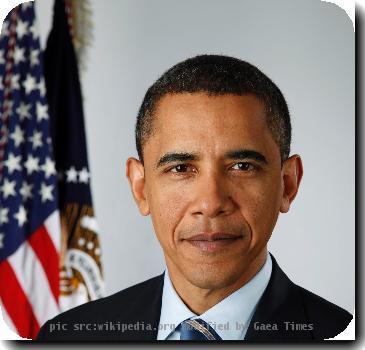Citigroup reaches deal to repay $20 billion in bailout money; government to sell stake
By APMonday, December 14, 2009
Citigroup to repay $20 billion in bailout money
NEW YORK — Citigroup Inc. said Monday it is repaying $20 billion in bailout money it received from the Treasury Department, in an effort to reduce government influence over the banking giant. The government will also sell its stake in the company.
Paying back the government gives an immediate lift to Citigroup’s reputation and will save the bank $1.7 billion a year in dividend payments, but it comes at a heavy cost. Raising the new capital will significantly dilute current shareholders’ stake in the company, and Citi’s shares fell more than 6 percent.
By approving the repayment, the government is saying Citi is on strong enough financial footing to stand on its own. It’s a far cry from the situation at the beginning of the year, when some analysts were saying Citi could fail completely and be taken over by the government.
“It gets rid of the stigma,” FBR Capital Markets analyst Paul Miller said.
Citigroup Inc. was among the hardest hit by the credit crisis and rising loan defaults, and received one of the largest bailouts of any bank during the financial crisis. The government gave Citi $45 billion in loans and agreed to protect losses on nearly $300 billion in risky investments.
Freed from the bailout program, Citi will now turn its attention to shedding the rest of its troubled mortgage portfolio and other risky assets, which it had separated from its traditional banking business in January.
At the same time, the bank is trying to build up those core businesses such as securities underwriting and institutional banking, where it faces heavy competition from JPMorgan Chase & Co. and other banks that suffered less during the financial crisis. The bank also wants to build up its consumer banking business, which trails competitors like Bank of America Corp. in size.
Citi is selling $20.5 billion in stock and debt to repay the government. It only has to pay back $20 billion because the remaining $25 billion was converted into a 34 percent ownership stake in the bank earlier this year. The government plans to sell that entire stake — which has risen in value by more than 20 percent — during the next year.
The loss-sharing agreement will also end as part of the plan.
After repaying the funds, Citi will no longer face heavy scrutiny and restrictions from the government, including caps on executive pay and dividends. However, the repayment comes at a heavy cost. Raising the new capital will significantly dilute current shareholders’ stake in the company.
Citi shares fell 7 cents to $3.88 in premarket trading Monday.
By approving the repayment, the government is essentially saying Citi is on strong enough financial footing to stand on its own. It’s a far cry from concerns at the beginning of the year when some analysts were saying Citi could fail completely and be taken over by the government.
Citigroup received the bailout as part of the Troubled Asset Relief Program, which was launched late last year to help ailing banks manage through the peak of the credit crisis.
The repayment by Citi comes as top executives from some of the nation’s biggest banks meet Monday with President Barack Obama. The president is asking the executives to back his efforts to tighten financial regulations, designed to rein in the risky behavior that led to the credit crisis. Obama could face difficulty though, after describing bankers as “fat cats” in a “60 Minutes” interview broadcast Sunday.
Nearly 700 banks of all sizes participated in the program. Most of the largest banks quickly paid back the money they received because it carried restrictions such as caps on executive pay and dividends. Many banks have bristled at the strict government oversight.
While the TARP repayment reduces the tight scrutiny of regulators, it also now leaves the bank more exposed to potential losses. The end of the loss-sharing agreement on about $300 billion of risky investments could hinder Citigroup’s continuing efforts to maintain profitability.
Citigroup has been among the hardest hit banks by the credit crisis and continues to see consumer loan defaults pile up. Loan losses cost the bank $8 billion during the third quarter.
It is widely expected consumers will continue to miss payments at rapid rates in 2010 because the job market remains weak and wages are not going up. Loan defaults are likely to remain high industrywide.
Citigroup reported a $101 million profit during the third quarter before accounting for $288 million in preferred stock dividends and the debt exchange offer that gave the government its stake in the bank. Including those costs, Citi lost $3.24 billion during the quarter ended Sept. 30.
Paying back TARP money will cut dividend costs by about $1.7 billion annually, the bank said. Citi will take an $8 billion pretax loss to pay back the bailout money.
Citi is issuing $20.5 billion in capital and debt to help repay its obligations, including the $17 billion of common stock. The bank also said it will award $1.7 billion in stock equivalents to employees instead of cash they would have ordinarily received as part of their compensation.
Citi had 22.86 billion shares outstanding as of Sept. 30. Based on Friday’s closing price, Citi would need to sell about 4.3 billion shares to raise $17 billion. That would dilute current shareholders stake in the company by about 19 percent.
Tags: Barack Obama, Citigroup, Dividends, Government Programs, New York, North America, Ownership Changes, United States







